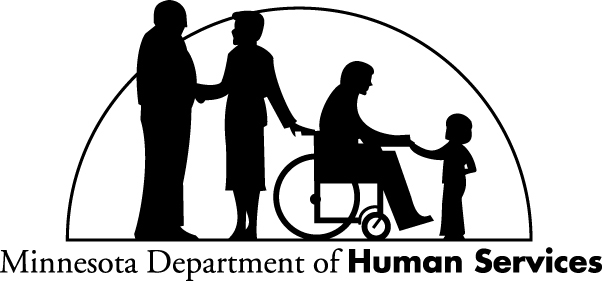Lesson #5: Documentation and Reporting in the PSR
Lesson #5: Documentation and Reporting in the PSR

Lessons in the PSR Course:
There are five lesson in this course.
- Introduction to the Positive Supports Rule (PSR)
- Positive Support Strategies and Person-Centered Planning
- Prohibited and Allowed Procedures in the PSR
- The Roles of Professionals in the PSR
- Documentation and Reporting in the PSR
Lesson #5 Description and Learner Objectives
Lesson #5 Description: Record keeping and documentation are often part of providing services. The Positive Supports Rule has some specific requirements around documentation, reporting, and record keeping that all covered providers need to complete. These same requirements are part of 245D.
After completing this module, you will be able to:
- Identify key documentation and recordkeeping requirements of the PSR.
- Identify forms that must be filled out as part of the PSR and where to find them.
Importance of Documentation & Record keeping

Documentation and recordkeeping are often requirements of licensed services. Because they are requirements, providers can get focused on compliance rather than purpose. However, when people struggle with behavior that interferes with their ability to live well in their communities, documentation and recordkeeping can be a critical piece to making positive progress. Especially when people have communication barriers and multiple caregivers are involved, documentation may be the only way to clearly understand what is happening for the person.
Documentation & Recordkeeping Basics
Basic documentation and records include:
- A person-centered service plan that indicates the person’s goals and how services support him or her in achieving these. It should track progress toward those goals.
- Information necessary to complete functional behavior, diagnostic, or similar assessments.
- Copies of completed assessments and records of medical and therapeutic interventions.
- Personnel (staff) records, including training records.
- Required documentation under the PSR around EUMR and incidents (BIRFS) and approved plans that allow temporary restrictions in the interests of the person’s safety (PSTP).
Documentation Requirements
To learn more about general documentation requirements you can go to the following sections of 245D and the PSR:
- 245D.095 RECORD REQUIREMENTS
- 9544.0100 Documentation and Record Requirements
Documentation Requirements In the PSR
- Emergency Use of Manual Restraint
-
EUMR should only be used in serious situations in which a person is at risk of harm or harming others and there are no other alternatives to protect people. Direct support professionals and other employees of the provider must have clear guidance on when, if, and how they may engage in these strategies. DHS requires license holders to have a policy. DHS provides a sample policy providers can use. You can use this to simplify the process and makes sure key components are attended to.
- BIRFs
-
BIRFS must be filled out whenever there is an EUMR of a person receiving services. They must also be filled out when the following occurs:
- Planned, temporary, transitional use of all imposed forms of restraint, time-out procedures, seclusion and punitive penalty consequences; (Please note, there must be a PSTP in place and license-holders must have requested and be approved for authorization for the emergency use of the prohibited procedure.)
- Emergency, temporary, and transitional use of all imposed forms of restraint, time-out procedures, seclusion and punitive penalty consequences;
- PRN psychotropic medication(s) administration in order to avert displayed behavior(s) or in response to displayed behavior(s) as identified on the BIRF reporting form;
- Law enforcement and/or other first responder calls and involvement in response to displayed behavior(s) as identified on the BIRF reporting form; and
- Emergency psychiatric hospitalization in response to displayed behavior(s) as identified on the BIRF reporting form.
- Mental health crisis occurs as a result of the use of restrictive intervention leading to a call to a mental health crisis services;
- Calls to mental health mobile crisis intervention services;
- A person’s use of crisis respite services due to use of a restrictive intervention;
- Interventions included in a Positive Support Transition Plan (PSTP). These interventions may include: Mechanical restraint, Time out, Seclusion, Penalty consequences, Programmatic use of manual restraint
- Any additional incident that the person’s PSTP or service plan requires the provider to report
You can review instructions for filling out the BIRF by clicking on the instructions button on the form. You may be asked to upload a copy of the person’s form. You can print the form.
- Positive Support Transition Plan
-
When a person has been subjected to EUMR three times in 90 days or four times in 180 days, or when for any reason there is use of a limited, or restricted method of managing behavior, a Positive Support Transition Plan must be developed. In this situation, there should be strong evidence that other methods that are person-centered, positive supports have been used to support the person. A functional behavior assessment is necessary to inform the development of the Positive Support Transition Plan. There should be good indication that the new strategies are the least restrictive to the person as possible. It should be likely that the approaches will respectfully and humanely help the person develop necessary skills needed to enhance their quality of life and decrease the use of the target intervention. The person and their legal designees (as applicable) must sign consent for approaches in the plan. When a PSTP, it requires review every 90 days or more often as specified by the plan. The review must be documented on Form 6810A and the following will be reviewed:
- Data on Target Behavior
- Data on Target Interventions
- Data on Quality of Life
- Evaluation of the most integrated setting
- Recommend changes to PSTP (Keep in mind substantial changes in the plan require a new 6810 form –a PSTP- to be completed)
Review the following to understand more about the forms that need to be completed for a PSTP.
Notice of the EUMR Policy
Providers who allow emergency use of manual restraint must have a written policy that all employees know about and can follow. People receiving services need to receive written notice of this policy. Other appropriate legal designees or support team members should be notified as well. Providers who do not permit EUMR must also have a policy in place. The policy must state what alternatives will be used in lieu of EUMR.
The notice must clarify the person receiving service's rights in this process. The license holder must obtain a written acknowledgment that the person and others, as are required by the rule, have been notified of the policy and had a chance to review it. At minimum, notification must happen upon service initiation and whenever the policy is changed.
Behavior Intervention Report Form (BIRF)
- Statute requires certain incidents be reported to DHS and the OMHDD
- To prevent multiple reporting needs, agencies have developed the BIRF
- Online reporting form covering reporting needs of the Positive Supports Rule
Reportable Incidents via BIRF
- Emergency use of manual restraint
- Medical emergency resulting from restrictive intervention requiring hospitalization or 911 call
- Mental health crisis resulting from restrictive intervention
- Incident requiring call to mental health mobile crisis intervention services
- Crisis respite use precipitated by restrictive intervention
- PRN psychotropic medication administration to intervene in a behavioral situation
- 911 call precipitated by a behavioral incident
Reportable Incidents via BIRF With PSTP

- Manual restraint
- Mechanical restraint
- Seclusion
- Time out
- Aversive or Deprivation procedure
These procedures are prohibited without a PSTP in place. With a PSTP in place they must still be reported on a BIRF.
“Positive Support Transition Plan” is the plan required for development by the expanded support team to implement positive support strategies to:
- eliminate the use of prohibited procedures
- avoid the emergency use of manual restraint
- prevent the person from physically harming self or others
- Improve the person’s quality of life
Positive Support Transition Plan (PSTP)
Sometimes a provider initiates services with a person for whom a prohibited procedure was used regularly prior to services being initiated. Should the person and their team determine that immediately ending the use of the procedure may cause serious harm to the person or others, the procedure could be used for up to 11 months, if it is incorporated into a Positive Support Transition Plan. The team has 30 days after admission to develop the plan, and 11 months after the date the plan is active to phase out the use of the prohibited procedure.
Positive Support Transition Plan (PSTP)
If a person begins behaving consistently in a manner that has the potential to cause serious harm to themselves or others and the person and their team determines that the use a prohibited procedure may be necessary for a limited time a PSTP may be developed. Effective positive support strategies must be included to eliminate the need for the procedure and eliminate the target behavior as part of the plan.
In this situation, the team must submit a request to a committee, called the External Program Review Committee (EPRC), for the use of the procedure. The EPRC reviews these types of requests and makes a recommendation to the Commissioner of DHS to allow the procedure or not. Before the prohibited procedure may be used, the team must receive permission for the emergency use of the procedure.
Required PSTP
Under the Positive Supports Rule there are conditions under which a PSTP must be developed. They include:
- After three uses of an EUMR in 90 days or four uses in 180 days.
- Before a prohibited procedure is implemented. Please review on the previous slide the circumstances in which this is e allowed.
The PSTP Documents
- Found in eDocs
- Begin with 6810
- PSTP sections
- Target intervention(s)
- Target behavior(s)
- Crisis support plan
- Quality of life indicators
- Measurement
- Informed consent
Informed Consent
In all situations the person receiving services must be informed of any interventions and they need to understand the risks and benefits. If they have limits on their rights to consent, their legal representative acting only within the scope of their authority must provide consent.
Keep in mind that all members of expanded support team are encouraged to consider the person’s preferences and work to help develop strategies that are in their best interest.
Lesson #5- Check Your Understanding & Review
-
Providers must complete a Behavior Intervention Report Form (BIRF) if they call mental health mobile crisis intervention services for any reason.
- [correct] True
- False
-
After January 1, 2014 providers who engage in emergency use of manual restraint are no longer required to complete a Positive Support Transition Plan.
- True
- [correct] False
-
The Positive Supports Rule requires documentation of positive support strategies used to support a person.
- [correct] True
- False
-
Prohibited procedures that are only used once or twice do not require a Positive Support Transition Plan.
- True
- [correct] False
Lesson #5 Conclusion
- Documentation and recordkeeping are essential parts of supporting people whose behavior interferes with their ability to fully participate in community life. It’s important to keep the purpose in mind as well as comply with the rule.
- All license-holders must have a policy about EUMR. If they allow EUMR, they ensure staff understand it and can comply, and have a written record indicating the policy was shared with people receiving services and their important others. If they do not allow EUMR, they must clarify what they will do in lieu of this type of procedure in an emergency.
- A BIRF must be filled out after EUMR or the use of any prohibited procedures, or engagement of crisis services.
- A PSTP must be developed if EUMR is used more often than allowed in the rule and before the use of any prohibited procedures.
There is a test linked to this lesson. You must take the test to receive credit for completing the lesson. Once you have finished reviewing this lesson, close the pop-up window and go back to your lesson assignment list. Then click on the title of the lesson you just completed, you will be taken to the welcome page again. A blue button "Take the Test" will have appeared. Click on it to take the test. Once you complete, submit, and pass the test, the lesson will be credited as complete.